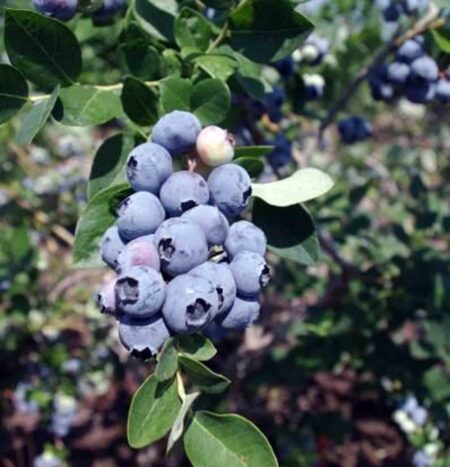NICEVILLE, Fla — Some people use a generous dusting of artificial snow on their Christmas tree to create a feeling of a winter wonderland. This is referred to as a flocked Christmas tree. But if your sago “palm” looks like it has been flocked, it probably means that a pest is involved. I’ve had homeowners describe their sago plant as having been flocked like a Christmas tree wanting to know what caused this.
More than likely, the cause is a troublesome scale insect pest.

This scale is called cycad aulacaspis scale. It is native to Asia and was first reported in Florida in 1996 in the Miami area. It is now not only considered to be established in Florida but is commonly found on sago plants throughout Florida.
This scale will infest the sago fronds (leaves) so densely that the leaves will completely be coated with a white crust, giving the plant that flocked appearance. This crust is composed of several layers of scales, both living and dead. The living scales insert their needle-like mouthparts into the plant tissue and suck out the plant sap. As a result, heavily infested leaves turn yellow, eventually turn brown and die. Cycad scale can be difficult to control because of the unusually dense populations, their rapid spread, the lack of natural enemies and the fact that this scale can infest the roots.
Cycad scale is prolific in their reproduction. Female scales produce 100 eggs or more during their lifetime. Eggs are deposited underneath the female scale’s waxy protective covering. The eggs hatch in approximately 8-12 days. Newly emerged young disperse by “crawling” to a feeding site. Depending on temperature, females mature, mate and produce another generation in 21-35 days.
Control is difficult, usually requiring repeat treatments with horticultural oils or approved systemic insecticides. Before treatment, wash infested plants with high-pressure water sprays to dislodge dead and live scales. Then apply the horticultural oil or insecticide, such as imidacloprid, at recommended rates. Complete coverage is extremely important. No single product will kill all the insects on your plants or prevent recolonization for extended periods.
Applications may not be necessary during winter and should be stopped when active scales are not present. However, an apparently clean plant may still harbor scales on its roots so monitoring during the following spring is important. Removal of heavily infested leaves may reduce population density but should not be done frequently because it may reduce plant vigor. Careful disposal of removed leaves is necessary to avoid spreading scales to other plants.
More info is available at https://edis.ifas.ufl.edu/in253.
Larry Williams is the Extension horticulture agent with the Okaloosa County Cooperative Extension Service, University of Florida. Contact Larry at 689-5850 or email lwilliams@myokaloosa.com.






